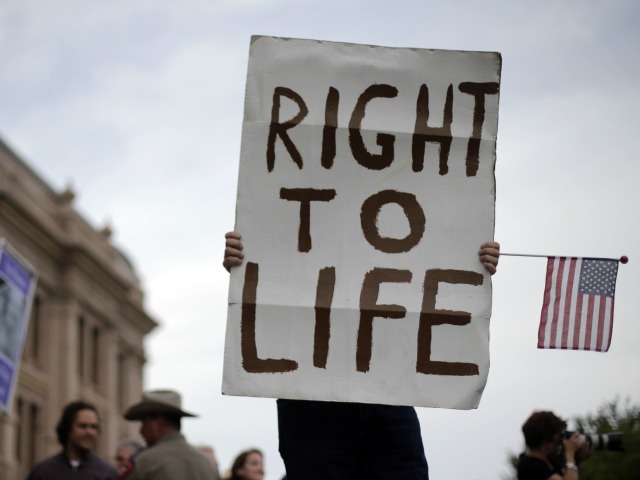
Everyone who practices abortion law in federal court knows about NOW v. Scheidler, the organized crime conspiracy case litigated by the Thomas More Society that has pitted pro-abortion and anti-abortion activists against each other since 1986. Now it’s finally over. The pro-life forces won.
“This suit began 28 years ago and has been to the Supreme Court three times. All defendants who stuck it out to the end (some settled) prevailed across the board,” Judge Frank Easterbrook began his opinion, writing for a three-judge panel of the U.S. Court of Appeals for the Seventh Circuit.
In 1986, the National Organization for Women (NOW) — a feminist group that is militant about pushing abortion rights — sued an anti-abortion coalition called the Pro-Life Action Network (PLAN) under the Racketeer Influenced and Corrupt Organizations (RICO) Act. In laymen’s terms, NOW accused pro-lifers of being legally the same as an organized crime syndicate. They also brought counts under anti-trust law.
This case was litigated by the Thomas More Society, a pro-life public-interest law firm with a Roman Catholic religious orientation. The case that gave birth to the Chicago-based organization.
The U.S. District Court for the Northern District of Illinois dismissed the case in 1991. The Chicago-based Seventh Circuit then affirmed that dismissal on appeal, holding that RICO only applies for profit-making enterprises. The U.S. Supreme Court reversed in a unanimous decision in 1994, holding that RICO can apply to nonprofit organizations, so the suit could proceed.
The case was reassigned to a new district judge, David Coar, who was appointed by Bill Clinton, and finally went to trial in 1998. Judge Coar ruled in favor of NOW in 1999, awarding $257,000 plus attorneys’ fees.
The Seventh Circuit affirmed this judgment in 2001, but the Supreme Court reversed again, this time ruling in favor of Thomas More and Scheidler/PLAN. But looking at the case for the third time, the Seventh Circuit decided that the Supreme Court had overlooked one part of the RICO verdict, and tried to send the case back to Coar in the district court.
Thomas More instead asked the Supreme Court to take the case a third time, which it did. The justices ruled unanimously in 2006 that the lower court needed to finally dismiss the entire case on the merits.
This judgment of dismissal was final in 2007. After that, Thomas More filed a bill for court costs. Then nothing happened for years.
Much of this case’s long and exhausting history is due to the inexcusable delay of Judge David Coar of the U.S. District Court for the Northern District of Illinois. He failed to do his job for three years after a bill for court costs was submitted to him, then retired before ruling on it.
So the matter was assigned to another judge, who issued a ruling two years later (which is also an unjustified delay, even for such a long and complex record). Then this new judge, Charles Norgle, issued a judgment for $63,000, which amounts to a measly $2,300 per year.
So this last round was argued before the Seventh Circuit for a fourth time on April 18, 2014. The court issued its decision just eleven days later, which is a lightning-fast speed typically reserved for dire emergencies.
In this final round, NOW objected to Thomas More lawyers filing sworn affidavits regarding their time sheets and documents for the case, arguing this was not enough to be awarded attorneys’ fees. Easterbrook’s reaction was, “Why not? No statute or rule requires more.” He noted that NOW argues that Thomas More lawyers must go through every document from 1986 through 2007 to show why it was necessary for the litigation. “That would be preposterous,” Easterbrook decided.
Then NOW argued that because Thomas More waited three years to avoid pestering the court, those lawyers had somehow forfeited their rights. It’s true the anti-abortion lawyers could have done something to nudge the district court, but they were not required to do so. Not only that, but the pro-abortion lawyers could have pressed the liberal Coar to issue a ruling if they thought they could win with him. “Nagging judges to act on motions under advisement is not essential to preserving one’s rights,” Easterbrook commented.
This case may set a record. It took 28 years, was heard by the Supreme Court three times (the Court only takes 1 percent of the cases offered to it — ever), and involved four decisions from the court of appeals. As Easterbrook concluded his opinion, “This litigation has lasted far too long. At last it is over.”
Ken Klukowski is senior legal analyst for Breitbart News. Follow him on Twitter @kenklukowski.

COMMENTS
Please let us know if you're having issues with commenting.